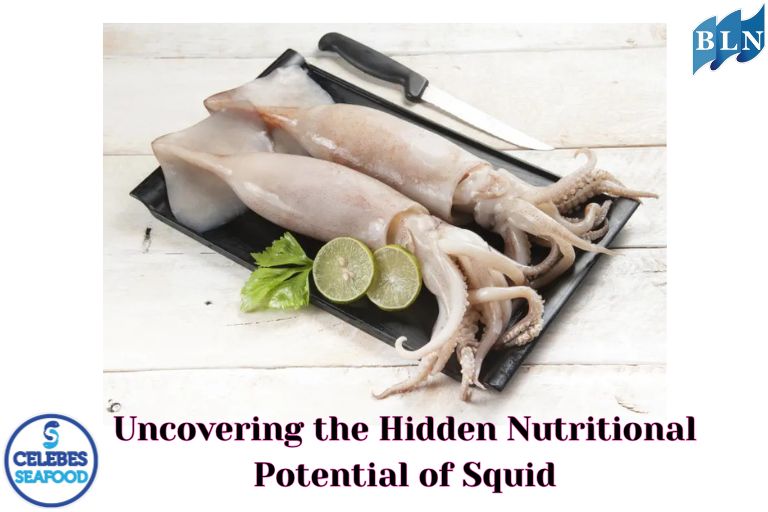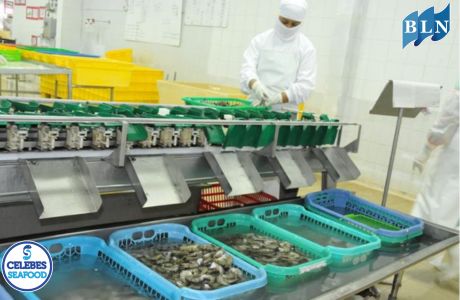Uncovering the Hidden Nutritional Potential of Squid
By. Amma - 17 Apr 2025
lautnusantara.com Squid is a group of marine mollusks from the order Teuthida, consisting of around 300 species. They are known for their soft bodies, eight short arms, and two long tentacles used to catch prey. Squid are widely distributed throughout the world's oceans and are an important fishery commodity in many countries, including Indonesia.
1. Main Nutritional Content in Squid (per 100 grams, estimate):
- High Protein: Squid is an excellent source of lean protein, providing around 16-18 grams of protein per 100 gram serving. Protein is important for building and repairing body tissues, and plays a role in various metabolic functions.
- Low Fat and Calories: Squid is relatively low in fat (around 1-2 grams per 100 grams) and calories (around 70-90 calories per 100 grams), making it a good choice for maintaining weight.
- Vitamin B12: Squid is an excellent source of vitamin B12, which is important for nerve function, red blood cell formation, and energy metabolism.
- Important Minerals:
a. Copper: Squid is very rich in copper, a mineral that plays a role in red blood cell formation, nerve health, and immune function.
b. Selenium: A powerful antioxidant that protects cells from damage and is important for thyroid function.
c. Phosphorus: Important for healthy bones and teeth, as well as energy metabolism.
d. Zinc: Plays a role in immune function, wound healing, and cell growth.
e. Magnesium: Involved in muscle and nerve function, blood sugar control, and blood pressure.
f. Iron: Important for oxygen transport in the blood.
g. Potassium: Helps regulate blood pressure and fluid balance.
- Omega-3 Fatty Acids: Squid contains omega-3 fatty acids, such as EPA (eicosapentaenoic acid) and DHA (docosahexaenoic acid), which are good for heart health, brain function, and reducing inflammation. Content may vary depending on squid species and diet.
- Taurine: Squid contains taurine, an amino acid that has antioxidant effects and may help heart health and brain function.
- Choline: An essential nutrient for brain and liver health.
- Lutein: An antioxidant known to be good for eye health.
2. Potential “Hidden” Nutrients and Health Benefits:
- Antioxidant Potential: In addition to selenium, squid also contains other compounds that have antioxidant activity, helping to protect the body from free radicals.
- Antimicrobial and Anticancer Effects (from squid ink): Early research suggests that squid ink has compounds that have potential antimicrobial, antioxidant, and anticancer effects. However, more research in humans is needed.
- Supports Heart Health: The omega-3 and taurine content in squid may contribute to heart health by helping to maintain healthy cholesterol levels and reduce the risk of heart disease.
- Improves Brain Function: The omega-3, vitamin B12, and choline in squid are important for cognitive function and brain health.
- Prevents Anemia: The iron and copper content in squid may help prevent and treat anemia.
- Supports Bone Health: Phosphorus and other minerals contribute to healthy bones and teeth.
- Boosts Immune System: Various vitamins and minerals in squid, such as zinc and vitamin C, play a role in maintaining a strong immune system.
Overall, squid has tremendous nutritional potential and can be a healthy part of a balanced diet when consumed wisely and prepared in the right way. Further research is ongoing to uncover the nutritional potential and other health benefits of squid.
If you are interested in our product CALAMARI WHOLE ROUND, CUTTLEFISH WHOLE ROUND please do not hesitate to contact us through email and/or whatsapp.







